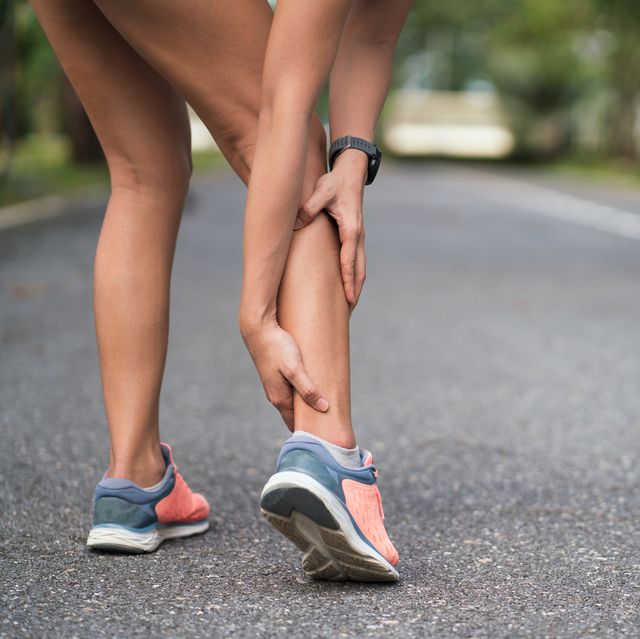Yes, improperly fitting shoes can cause Achilles tendonitis. Achilles tendonitis can be caused by footwear that lacks proper arch support or has a rigid back that rubs against the Achilles tendon during movement.
Are you experiencing pain and discomfort around your Achilles tendon? This was asked to my cousin Jack’s father first by his doctor when he went for orthopedics in last June on his Baffalo NY visit. The cause of your discomfort might be as simple as your choice of footwear, doctor said to him. Improperly fitting shoes can lead to a condition called Achilles tendonitis. This condition occurs when the Achilles tendon, a band of tissue that connects your calf muscles to your heel bone, becomes inflamed or irritated.
It commonly affects runners and athletes, but anyone can develop it. We will explore how shoes can contribute to Achilles tendonitis, the signs and symptoms to look out for, and tips on choosing the right footwear to prevent and manage this condition.
|
Serial |
Relevant Issues You May Need To Know |
|
1 |
|
|
2 |
|
|
3 |
Can Shoes Cause Achilles Tendonitis: Understanding
Achilles tendonitis refers to the inflammation of the Achilles tendon, which connects the calf muscles to the heel bone. This condition often arises due to overuse, intense physical activities, or poorly fitting footwear, among other factors.

Definition and causes
Achilles tendonitis typically occurs when the tendon experiences excessive stress or repetitive motion. Athletes, particularly runners, may be prone to this condition. Wearing shoes that lack proper support or that exert excessive pressure on the Achilles tendon can contribute to the development of tendonitis. Additionally, sudden increases in physical activity, improper training techniques, and structural abnormalities can increase the risk of Achilles tendonitis.
Anatomy of the Achilles tendon
The Achilles tendon is the thickest and strongest tendon in the body, stretching from the calf muscles to the heel bone. It plays a crucial role in enabling the foot to point downward and facilitating movement during activities such as running and jumping. The tendon’s structure makes it susceptible to injury, especially if repetitively stressed without adequate rest and recovery.
Identifying The Causes for Achilles Tendonitis
Achilles tendonitis can be caused by various factors, and one crucial aspect to consider is the role of footwear. Certain shoe features can contribute to the development of this condition. It is important to be aware of these common culprits in order to make informed choices when selecting shoes.
- Tight Heel Counter: Shoes with a tight or rigid heel counter can put excessive pressure on the Achilles tendon, leading to irritation and inflammation.
- Improper Arch Support: Footwear lacking adequate arch support can cause excessive strain on the Achilles tendon, especially for individuals with flat or excessively high arches.
- Poor Cushioning: Shoes with insufficient cushioning can increase the impact on the heel and Achilles tendon, aggravating the condition.
- High Heels: Wearing high-heeled shoes regularly can shorten the calf muscles, compromising the flexibility of the Achilles tendon and increasing the risk of Achilles tendonitis.
By being mindful of these factors, individuals can choose shoes that prioritize comfort, proper arch support, and adequate cushioning. It is essential to consult a healthcare professional for a comprehensive evaluation and personalized recommendations if you suspect Achilles tendonitis.
The Importance Of Shoe Fit in Achilles Tendonitis
Achilles tendonitis is a common condition that can cause discomfort and pain in the back of the lower leg. While there are several factors that can contribute to the development of Achilles tendonitis, shoe fit plays a crucial role. Finding the right shoe size for your foot is essential in preventing this condition.
Impact of improper shoe fit on the Achilles tendon:
| Rubbing and Pressure | Ill-fitted shoes can create excessive rubbing and pressure on the Achilles tendon, leading to inflammation and injury. |
| Limited Support | If shoes do not provide adequate support to the foot, the Achilles tendon can become strained and susceptible to injury. |
| Heel Stability | Shoes with poor heel stability can cause the Achilles tendon to be positioned at an unnatural angle, increasing the risk of tendonitis. |
| Toe Box Size | Footwear with a narrow toe box can put excessive pressure on the toes, leading to compensatory strain on the Achilles tendon. |
It is important to prioritize finding shoes that fit well and provide proper support to avoid the development or exacerbation of Achilles tendonitis. This can include seeking professional advice, trying on shoes in the afternoon when your feet are at their largest, and considering the specific needs of your feet. By ensuring the right shoe fit, you can reduce the risk of Achilles tendonitis and maintain optimal foot health.
Types Of Shoes To Avoid
Shoes play a crucial role in the occurrence of Achilles tendonitis. When it comes to the types of shoes to avoid, high heels are on top of the list. These fashionable yet precarious footwear can cause significant strain on the Achilles tendon, leading to inflammation and pain. The elevated heel height and the unnatural foot positioning in high heels put excessive pressure on the tendon, increasing the risk of developing tendonitis.
Athletic shoes can also pose potential pitfalls. It is important to choose athletic shoes that provide adequate support and cushioning to prevent injuries, including Achilles tendonitis. Ill-fitting or worn-out athletic shoes can contribute to excessive stress on the tendon and aggravate the condition.
A podiatrist can provide recommendations on the most suitable shoe types for individuals prone to Achilles tendonitis to help prevent and alleviate the discomfort associated with this condition.
Choosing Achilles-Friendly Shoes
| Choosing Achilles-friendly Shoes |
| When it comes to preventing Achilles tendonitis, selecting the right shoes plays a crucial role. By considering certain characteristics, you can find shoes that provide excellent support to the tendon and minimize the risk of injury. |
| Recommended shoe features for Achilles tendonitis prevention: |
|
Frequently Asked Questions Of Can Shoes Cause Achilles Tendonitis
Can Wearing The Wrong Shoes Cause Achilles Tendonitis?
Wearing shoes with improper support or fit can increase the risk of Achilles Tendonitis.
What Type Of Shoes Should I Avoid To Prevent Achilles Tendonitis?
Avoid shoes with insufficient cushioning, lack of arch support, or those that do not fit properly.
How Can I Choose The Right Shoes To Prevent Achilles Tendonitis?
Choose shoes with proper heel cushions, arch support, and a snug yet comfortable fit to prevent Achilles Tendonitis.
Are There Any Specific Shoe Brands Recommended To Prevent Achilles Tendonitis?
Certain shoe brands like Nike, Brooks, Asics, and New Balance offer models specifically designed to prevent Achilles Tendonitis.
Conclusion: How Shoes Cause Achilles Tendonitis
Wearing ill-fitting shoes can potentially contribute to the development of Achilles tendonitis. The wrong shoe can place unnecessary stress on the Achilles tendon, leading to inflammation and pain. Therefore, it is crucial to choose footwear that provides proper support and cushioning to prevent this condition.
Remember, taking care of your feet by wearing the right shoes is essential for maintaining your overall foot health and preventing Achilles tendonitis.

